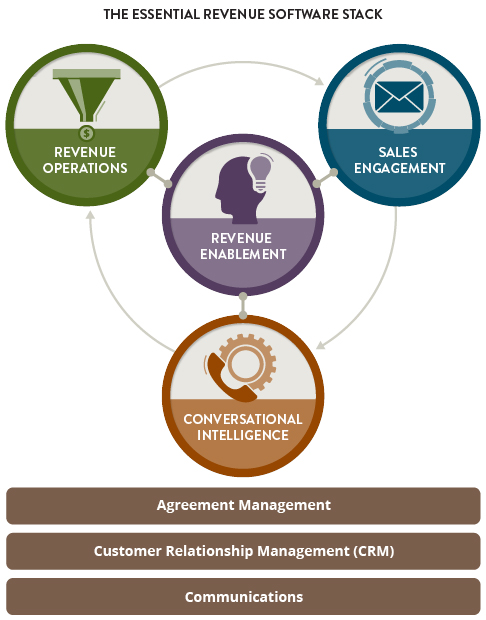The essential revenue software stack
From working with our 90+ portfolio companies and their customers, as well as from frequent conversations with enterprise leaders, we have observed a set of software services emerge and evolve to become best practice for revenue teams. This set of services — call it the “revenue stack” — is used by sales, marketing and growth teams to identify and manage their prospects and revenue.
The evolution of this revenue stack started long before anyone had ever heard the word coronavirus, but now the stakes are even higher as the pandemic has accelerated this evolution into a race. Revenue teams across the country have been forced to change their tactics and tools in the blink of an eye in order to adapt to this new normal — one in which they needed to learn how to sell in not only an all-digital world but also an all-remote one where teams are dispersed more than ever before. The modern “remote-virtual-digital”-enabled revenue team has a new urgency for modern technology that equips them to be just as — and perhaps even more — productive than their pre-coronavirus baseline. We have seen a core combination of solutions emerge as best-in-class to help these virtual teams be most successful. Winners are being made by the directors of revenue operations, VPs of revenue operations, and chief revenue officers (CROs) who are fast adopters of what we like to call the essential revenue software stack.
In this stack, we see four necessary core capabilities, all critically interconnected. The four core capabilities are:
- Revenue enablement.
- Sales engagement.
- Conversational intelligence.
- Revenue operations.
These capabilities run on top of three foundational technologies that most growth-oriented companies already use — agreement management, CRM and communications. We will dive into these core capabilities, the emerging leaders in each and provide general guidance on how to get started.

Image Credits: Madrona (opens in a new window)
No comments: